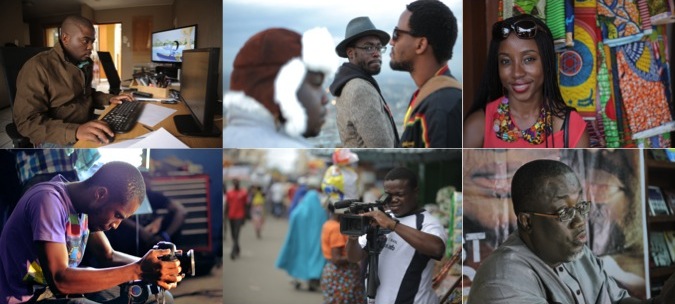With millions of young Africans unable to secure formal employment opportunities, boosting entrepreneurship is critical to harnessing their energy and advancing Africa’s economic transformation and industrial development, Aeneas Chapinga Chuma said at the opening of the Federation of West African Employers Associations’ (FOPAO/FWAEA) General Assembly.
“The biggest business opportunities in the coming decade will be created by Africans who start businesses, generate jobs and wealth, and capture growth opportunities”, ILO’s Assistant Director-General told participants urging “Africa and its regional organizations to pursue an ambitious continent-wide initiative to generate jobs through small and medium-sized enterprises”.
Mr Chuma is attending, for the first time, the FOPAO/FWAEA’s annual event, chaired by Jean Kacou Diagou, and which brings together delegates from employers’ organizations of the fifteen ECOWAS countries and Mauritania (observer).
“Creating jobs, decent jobs, for Africa’s fast growing population” remains of the key challenges of our time, reiterated Aeneas Chuma in his keynote address and “unless bold actions are taken (…), Africa’s youth bulge could be a recipe for social and political instability for the region and beyond”, he warned.
The FOPAO/FWAEA general assembly dedicated its 2016 ordinary session to creating decent jobs for young people through a private sector-led inclusive growth and improved competitiveness of West African economies.
“Reducing the number of young people not in employment, education or training is critical to ensure peace, greater social cohesion and political stability, and economic progress”, ILO’s Head for Africa underlined.
Cultivating a culture of entrepreneurship
To promote an entrepreneurial spirit, participants underscored the need to strengthen a cadre of home-grown business leaders able to access regional and global markets and drive growth in a sustainable and inclusive manner.
Yet youth entrepreneurship in Africa is still low and a lot remain to be done to respond to the lack of access to affordable funding, support services and skills training, while facing administrative constraints.
According to the 2013 Global Entrepreneurship Monitor/Youth Business International (GEM/YBI) youth entrepreneurship report, of all the regions in the world, the highest proportion of potential youth entrepreneurs is to be found in Sub-Saharan Africa (60%). However 32% of these young men and women are necessity-driven entrepreneurs, which means that entrepreneurship is perceived as a survival strategy and not as a business opportunity.
“Introducing entrepreneurship education in schools, (…), providing business development services for out-of-school youth, (…), and supporting access to finance for young entrepreneurs”, are some of the policy recommendations put forward by the ILO, Chuma emphasized.
What works to promote business growth and entrepreneurship is the openness to the global economy, a conducive business and investment environment, high rates of saving and investment, good governance, labour mobility and social cohesion with political stability, the regional Director for Africa highlighted.
“Effective social dialogue and tripartism will strengthen constituents’ contribution to the implementation of the new regional and global sustainable development frameworks”, Aeneas Chuma concluded.
During his official visit, the ILO Chief for Africa, who is accompanied by Francois Murangira and Dramane Haidara, ILO Directors based respectively in Dakar (Senegal) and Abidjan (Cote d’Ivoire), met with Prime Minister of Cabo Verde, Jose Maria Neves, as well as the tripartite constituents of the country.
Facts and Figures
- Generating decent jobs for the youth is one of the most pressing post-2015 challenges in the Africa region.
- Half of the region’s population today is under 25 years of age.
- Sub-Saharan Africa is projected to have the fastest growing working age population in the world until 2030.
- From 2015 to 2030, 5 million new jobs will need to be created every year just to keep up with the growth of the labour force.
- The African Union’s Agenda 2063 – the Africa we want! – is advocating for a continent where unemployment, particularly for youth, is eliminated and Africa’s people guaranteed full access to education, training, skills and technologies – jobs and economic opportunities.

